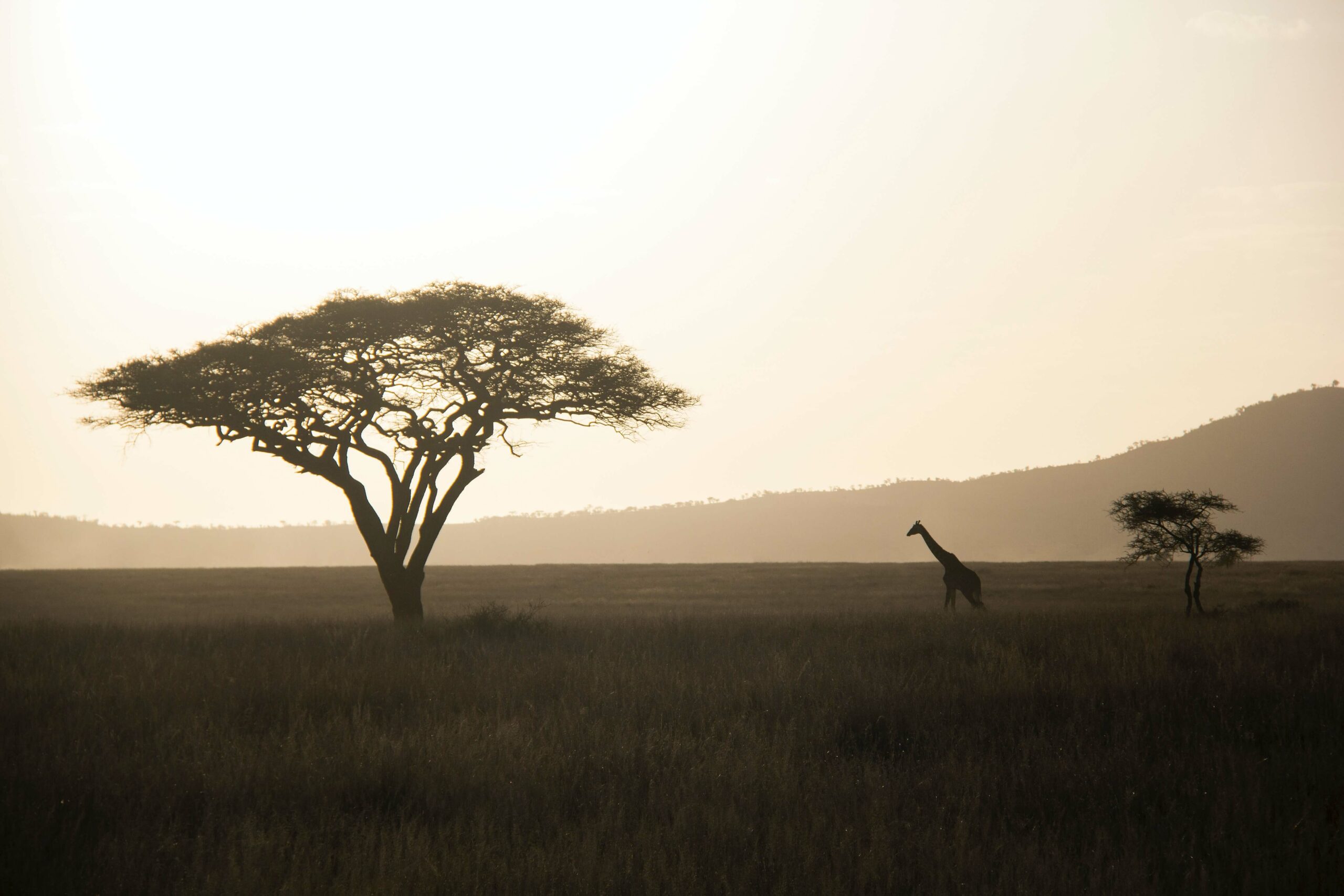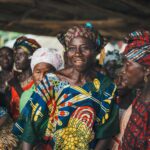The Igbo people, or Ndigbo as they’re known East of the Niger River, are one of the most industrious tribes in Nigeria – the most populous black nation on earth.
The tribe of Igbo is the third largest in the country, with over 350 ethnic groups. However, Ndigbo stands out because of their industry, passion for hard work, and success in business enterprise.
Consequently, Igbo wedding traditions are one of the African continent’s most colorful festivities. The people use occasions like marriages as an avenue to display riches and wealth.
Even though the traditional wedding rituals are generally the same within the Igbo tribe, some steps are unique from one village and community to the other.
Like most West African cultures, Igbo people finish the marriage rites by going to the church or courthouse for a Christian or civic wedding. Still, below are some unique traditions and rituals of this most vibrant tribe in West Africa.
10 Igbo Wedding Traditions and Rituals
1. Iju Ese & Iku Aka N’uzo
Iju Ese or Iku Aka N’uzo are Igbo words that mean “to knock.” “Knocking on the door” is a common practice in West Africa. This Igbo ritual makes this list because it kickstarts the traditional marriage rites of Ndigbo.
The influence of colonization and the adoption of Western practices makes it the norm for Igbo couples to have an engagement party. The man presents his fiancé with a ring. However, this step is succeeded by the Iku Aka N’uzo.
This Igbo ritual involves the groom and his people paying a visit to the bride’s family home. The groom doesn’t come alone but will have his family members, including his father, brothers, cousins, and uncles, follow him to the venue.
2. Iwa Oji
The groom will come with drinks, including gallons of palm wine, beer, and spirits like schnapps, whiskey, or brandy.
Subsequently, the bride’s family welcomes the guests into their home before the ritual of Iwa Oji, which means to “offer the kola nut.” It’s worth pointing out the importance of kola nuts in Igbo society.
In Igbo culture, offering kola nuts to a guest signifies that the visitor is welcome into the home. The bride’s father (if he is alive) or a senior member of the bride’s family will offer this kola nut to the most senior member of the groom’s entourage.
Once the blessing and sharing of the kola nut are over, the groom’s uncle or father will formally make their intentions known; to ask for the hand of the bride in marriage.
After that, the bride’s father will acknowledge receipt of the message, saying he will respond to their request upon discussions with his daughter and family.
Both parties will subsequently enjoy the drinks and other refreshments before they part ways. If the bride-to-be gives her consent, the parties proceed to the next step of the Igbo wedding tradition.
3. Iju Ajuju
No Igbo traditional marriage can take place without Iju Ajuju. The primary aim of this wedding ritual is for both families in the bride and groom camp to conduct investigations about each other. Both families will investigate whether the couples make a good match at this stage.
This investigation will reveal the hometown of both families. Additionally, the inquiry will look for hereditary diseases in either family, their character and moral standing, religious beliefs, and whether or not the family is an Osu.
Interestingly, the Igbos practice the Osu caste system similar to India, and many Igbo families will not allow their children to marry into an Osu family.
Fortunately, current changes in the law and society are turning the tide of this custom. If either family isn’t satisfied with the investigation outcome, the marriage cannot proceed.
4. Ihu Isi Nwanyi
Suppose both parties are happy with the investigation results. In that case, the follow-up visit will center on the bride price and bridal list.
The bridal list is also known as the “Ihu Isi Nwanyi” and is as important as the marriage itself. The wedding cannot be held without this dowry being paid in full.
The bridal list contains the bride’s price and the other items necessary for the Wine Carrying Ceremony. Igbo tradition demands the bride’s family to give the groom’s family the bridal list.
In addition to the bride price, the items on the bridal list will cover the gifts to the Igbo village community that include the Umunna (men), Umuada (womenfolk), Umuyouth, (young adults), and the Mmanwu (masquerade society).
Currently, the groom can pay a lump sum to fulfill the items on the bridal list, primarily if he resides in a foreign land like the United States or the United Kingdom.
Some of the items on the bridal list include:
- Yam tubers
- Sacks of rice
- Cash gifts
- Cartons of beer
- Crates of soda
- Tobacco head
- Jewelry for the bride’s mother
- Wristwatch for bride’s father
- High-quality Ankara
- Livestock
Remember that the bridal list varies from one Igbo community to another. For instance, the bridal list in Nnewi, Anambra state, often differs from what you’ll find in Orlu, Imo state. Moreover, the exact number of gifts will depend on the customs of each village.
5. Ego Isi Nwanyi
Bride price is also known as the Ego Isi Nwanyi and is a continuation of the Ihu Isi Nwanyi. However, the former goes deeper into the bride price and the subsequent negotiation.
Bride price is a massive deal in Igbo culture, and there’s much haggling and back and forth between the bride and groom camps.
The groom’s people want to pay a smaller price while the bride’s family prefers a higher fee. However, both parties often meet in the middle because at the heart of it all are two people in love who want to marry each other.
Moreover, the payment of the bride price doesn’t mean that the bride is a commodity for sale. Many Igbo communities will receive a small sum of money and gifts to complete this ancient ritual.
6. Igba Nkwu
Igba Nkwu is the main marriage ceremony in Igboland. After concluding this step, the couple is recognized as married under the Marriage Act and Nigerian Customary Law.
At the center of this occasion is the Wine Carrying Ceremony. The Igba Nkwu and Wine Carrying Ceremony are both open events and the only step in the Igbo wedding tradition that members of the public can attend.
The Igba Nkwu begins when the groom arrives with his entourage at the bride’s family house. Both parties will meet and greet before the occasion kicks off with prayers.
Subsequently, the bride will appear three times with her bridal train to dance and greet the guests. Each time she wears a different Asoebi.
7. Asoebi
Asoebi is a custom from Yorubaland but is now prevalent in many Nigerian weddings, cutting across various ethnicities, including Igboland.
The Asoebi is a uniform worn by the bride and her unmarried female friends. They all wear matching traditional attire to escort the bride and dance with her during the Igba Nkwu and Wine Carrying Ceremony.
8. Wine Carrying Ceremony
The Wine Carrying Ceremony involves the bride taking a cup of palm wine from her father. She will look for her husband in the crowd of well-wishers and guests.
Once she spots her husband (usually hidden in a corner), she will take the wine to him and kneel as he drinks. It’s the act of drinking this wine that completes the marriage.
The bride proceeds to lead the groom to her father for his blessings. Cheered and encouraged by the bustling crowd, the couple kneels before the bride’s father. He will bless the newlyweds, offering them words of wisdom as they start their marital life.
This step marks the end of the Igbo wedding. The subsequent steps are emotional for the bride and her family.
Custom demands she leaves with all her belongings from her father’s house to her husband’s and his family.
9. Idi Ulo
Idi Ulo is a custom where the bride’s family gives her gifts to start her marital life. These gifts are practical and can include cooking utensils and furniture.
Wealthier families may offer the couple a vehicle, land, cattle, or a house. It’s up to the bride’s family to present her with Idi Ulo during the Igba Nkwu or wait until the conclusion of the Christian or courthouse wedding.
10. Imata Ulo Di
Imata Ulo Di takes place after completing all wedding rites, including the traditional courthouse and church wedding. Ideally, the newly married couple are settled in their new home after concluding their honeymoon.
It’s Igbo tradition for the bride’s family to know where their daughter lives and if she’s being taken care of and happy in her new home. The bride’s family will send a message stating the date and time for their scheduled visit.
The newly married couple and the groom’s family members will play host, buying lots of drinks and preparing food in anticipation of the bride’s family.
This event is a casual and relaxed affair with both families discussing events from the wedding and sharing pictures. If the bride’s family is satisfied that their daughter is cared for, they may present a small gift to the groom as a gesture of appreciation.




